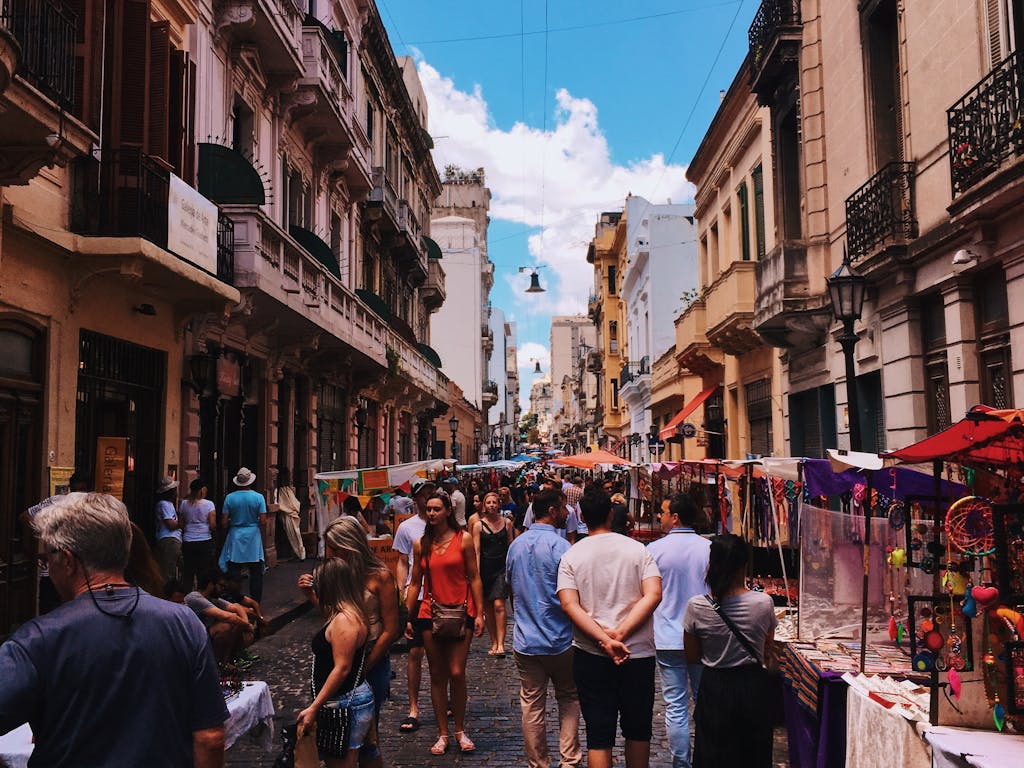The Impact of Tourism on Local Communities: Good Practices and Positive Examples
Tourism has long been considered a driving force for economic growth, especially in regions rich with culture, history, or natural beauty. However, the impact of tourism on local communities can be a double-edged sword. While it often brings economic benefits and promotes cultural exchange, tourism can also lead to environmental degradation, cultural displacement, and increased living costs for locals. Understanding both the positive and negative effects is crucial to promoting sustainable tourism that benefits everyone involved. In this post, we will explore how tourism affects local communities and highlight good practices and positive examples that prioritize responsible tourism.
Economic Opportunities and Challenges for Local Communities
Tourism can provide significant economic advantages for local communities, particularly in developing regions or rural areas where job opportunities may be scarce. In many destinations, tourism creates jobs in sectors like hospitality, transportation, and retail. Local artisans also benefit by selling crafts and goods to tourists, thus preserving traditional crafts and boosting local economies.
However, the economic benefits of tourism are not evenly distributed. In some cases, large multinational companies control much of the tourism infrastructure, such as hotels and tour companies, leaving local businesses to compete with limited resources. This imbalance can prevent small business owners from truly benefiting from tourism, creating a cycle of dependency and inequality.
Empowering Local Businesses Through Tourism
One of the best ways to mitigate the negative economic impact of tourism is to prioritize community-based tourism (CBT). This model allows local residents to retain control over tourism services, ensuring that profits remain in the community. By promoting local guesthouses, restaurants, and tour operators, visitors can support the local economy directly.
For example, in Chiang Mai, Thailand, the “We Love Chiang Mai” initiative encourages tourists to stay in locally-owned accommodations and purchase goods from small vendors. This has led to an increase in local income and job creation, offering a sustainable solution to economic inequality. Supporting small businesses also helps preserve the unique cultural identity of a destination, preventing it from becoming overly commercialized.
The Social and Cultural Impact of Tourism
Cultural exchange is often viewed as one of the most enriching aspects of tourism. Visitors have the opportunity to learn about the traditions, customs, and lifestyles of the communities they visit, fostering understanding and tolerance across cultures. However, if not managed responsibly, the impact of tourism on local communities can lead to cultural erosion, commodification, and even resentment among residents.
Protecting Cultural Heritage Through Sustainable Tourism
When tourists flood into a community without proper management, local cultures can become commercialized, losing their authenticity in the process. Historic sites may be overcrowded, and traditional festivals may be modified to cater to tourist expectations rather than cultural significance. This can cause locals to feel disconnected from their heritage, as their customs become merely a spectacle for visitors.
To combat this, responsible tourism initiatives emphasize the importance of preserving cultural heritage while allowing visitors to engage meaningfully with local traditions. For example, Bhutan has adopted a high-value, low-impact tourism model. By requiring all tourists to pay a daily fee, Bhutan limits the number of visitors and ensures that the funds are reinvested into the protection of its cultural heritage. Visitors can still experience Bhutan’s unique traditions, but in a way that respects the local way of life. Learn more about Bhutan’s tourism policy here.
The Environmental Consequences of Tourism
Tourism also has a significant environmental impact, particularly in areas of natural beauty such as coastal regions, mountains, and national parks. The influx of tourists can lead to habitat destruction, pollution, and overuse of natural resources. Moreover, the construction of hotels, resorts, and infrastructure often disrupts local ecosystems, contributing to biodiversity loss.
Promoting Eco-Tourism to Preserve the Environment
The rise of eco-tourism offers a solution to mitigate the environmental damage caused by mass tourism. Eco-tourism promotes responsible travel to natural areas, conserving the environment and improving the well-being of local people. By choosing eco-friendly accommodations and tour operators, tourists can minimize their footprint and contribute to the protection of the destinations they visit.
One successful example is Costa Rica, which has become a leader in eco-tourism. With a focus on sustainability, Costa Rica has established numerous protected national parks and wildlife reserves. Tourists are encouraged to visit these areas through responsible operators who prioritize conservation. The revenue generated is reinvested into maintaining these protected areas, creating a model where tourism actively contributes to environmental preservation. You can read more about Costa Rica’s eco-tourism success here.
Additionally, voluntourism—where tourists engage in volunteer activities such as wildlife conservation or reforestation—allows travelers to directly contribute to environmental protection. While this practice must be approached with care to ensure it is beneficial, it can offer a meaningful way for tourists to give back to the destinations they visit. Learn more about voluntourism and its benefits.
Socially Responsible Tourism: Making a Positive Difference
While tourism can sometimes strain local resources and communities, several initiatives focus on socially responsible tourism that benefits both visitors and residents. This includes ensuring that tourism development is community-led, that locals have a say in how tourism is managed, and that profits are shared equitably.
Examples of Socially Responsible Tourism Initiatives
One remarkable example is G Adventures, a company that promotes small-group travel with a focus on community engagement and sustainability. G Adventures partners with local NGOs to create meaningful travel experiences that benefit local residents. From homestays with indigenous families to supporting women-led cooperatives, the company ensures that tourists leave a positive footprint in the communities they visit. Explore G Adventures’ impact here.
Another inspiring example is the Maasai Mara National Reserve in Kenya, where local Maasai communities are actively involved in managing and benefiting from the reserve’s tourism. The Maasai are employed as guides, lodge staff, and conservation workers, and a percentage of tourism revenue goes toward community projects such as schools and healthcare. Read more about Maasai Mara’s sustainable tourism model here.

The Future of Tourism: A Sustainable Path Forward
As the tourism industry continues to grow, it is essential to implement and expand good practices that prioritize the well-being of local communities. Destinations around the world are now recognizing the need for sustainable tourism practices to ensure that the benefits of tourism are shared with the local population while minimizing the environmental and cultural damage.
How Travelers Can Contribute to Sustainable Tourism
Travelers themselves play a significant role in shaping the future of tourism. By making conscious choices—such as staying in eco-friendly accommodations, supporting local businesses, and participating in responsible travel programs—tourists can help reduce the negative impact of tourism on local communities. Moreover, travelers should educate themselves about the destinations they visit, respecting local customs, and acting as responsible global citizens.
Choosing tour operators that have sustainability certifications, like Travelife or Green Key, ensures that tourism dollars are invested back into the community and help to preserve both culture and environment. Find out more about sustainable travel certifications here. Additionally, supporting destinations that have embraced sustainable tourism policies, like New Zealand or Iceland, can set a positive example for other regions.
Tourism as a Force for Good
When managed responsibly, the impact of tourism on local communities can be overwhelmingly positive. From boosting local economies and preserving cultural heritage to protecting the environment and fostering global understanding, tourism has the potential to create lasting positive change. However, this requires a commitment from all stakeholders—governments, businesses, and travelers alike—to prioritize sustainability and responsibility in every aspect of tourism development.
By learning from positive examples around the world and adopting good practices, we can ensure that tourism remains a force for good—one that benefits local communities and preserves the unique qualities that make these destinations worth visiting in the first place.













